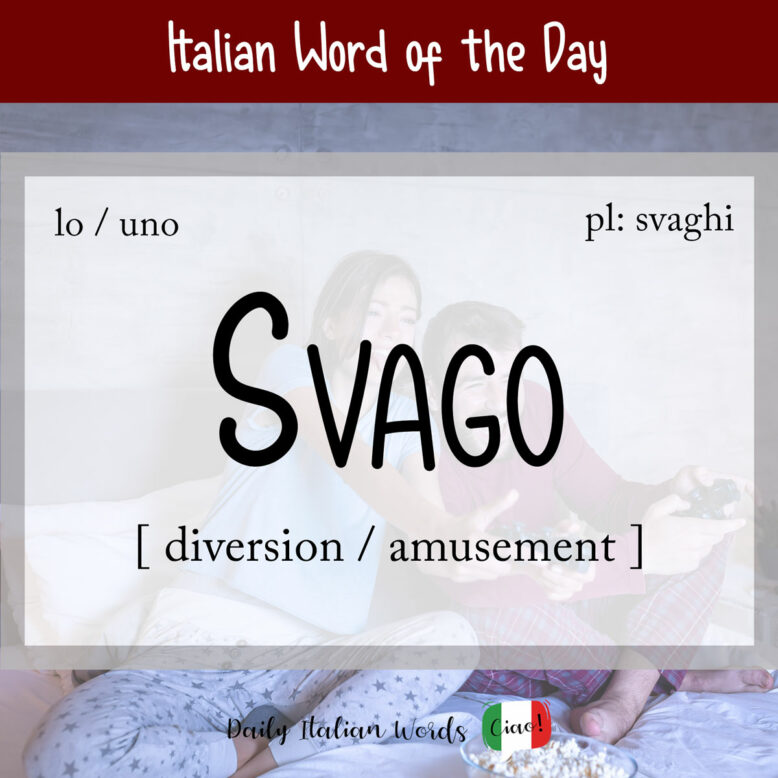Svago is a very useful Italian noun that refers the act of stepping away from a job or an occupation for the sole purpose of relaxation. Although we don’t have a noun in English that corresponds perfectly to svago, a few close translations include diversion, relaxation, distraction, recreation and leisure.

The verb from which it derives, svagarsi, can be translated as to take one’s mind off (something) or to distract / divert oneself.
Svago is a masculine noun whose definite and indefinite articles are as follows:
- lo svago
- gli svaghi
- uno svago
- degli svaghi
Voglio prendermi qualche giorno di svago.
I want to take a few days off work to relax.
Un social dovrebbe essere usato come svago o come strumento istruttivo, non come mezzo per sfogare le proprie frustrazioni.
A social network should be used as a form of recreation or an educational tool, not as a means to vent one’s frustrations.

Svago can also be used to refer to the very things that allow us to relax. In this case, the best translations include entertainment, amusement or things to do.
In questa città ci sono pochi svaghi per i giovani.
There isn’t much to do in this city for young people.
(lit. In this city there are few amusements for young people.)
Someone who is svagato, on the other hand, can be described as being absent-minded, or having their head in the clouds.
Heather Broster is a graduate with honours in linguistics from the University of Western Ontario. She is an aspiring polyglot, proficient in English and Italian, as well as Japanese, Welsh, and French to varying degrees of fluency. Originally from Toronto, Heather has resided in various countries, notably Italy for a period of six years. Her primary focus lies in the fields of language acquisition, education, and bilingual instruction.


